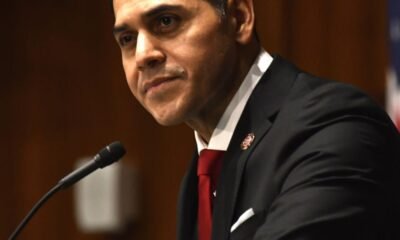Business
Failing Charter School Shut Down by Arizona Regulators Reborn as Taxpayer-Funded Religious Institution

Arizona’s education landscape is under scrutiny after the abrupt closure of Title of Liberty Academy, a private Mormon K-8 school in Mesa. Parents, many drawn to the institution by Arizona’s expansive voucher program, were forced to find new educational options just months into the school year due to the school’s financial struggles. The school’s sudden shutdown has raised significant concerns over the transparency of private institutions funded by public dollars.
Families had aimed to escape what they perceived as ineffective public schooling, seeking alternatives that aligned more closely with their values. However, the closure of Title of Liberty Academy highlights a growing trend within Arizona’s voucher system: the lack of accountability for schools supported by taxpayer money. Despite being marketed as a school of choice, parents lacked the necessary information to make informed decisions regarding the academic stability and financial health of the school.
The lack of oversight is alarming. For instance, families enrolling in Title of Liberty were unaware that the institution had once been ARCHES Academy, a charter school shut down due to financial mismanagement. Before its closure, ARCHES had a dismal track record, with only 13% proficiency in English and none in math as of 2023. However, upon rebranding, the institution was able to accept vouchers without meeting any of the previously required standards.
Commenting on the situation, Michelle Edwards, the founder of both ARCHES and Title of Liberty, noted a shocking lack of oversight when transitioning to a private school. Edwards described how state agencies offered no guidance concerning the accountability measures that should be in place, stating, “If you’re gonna call yourself a school, there should be at least some reporting that has to be done about your numbers.”
The implications of Arizona’s “universal” education savings account program are significant, especially as other states look to replicate its model. Critics argue that without stringent accountability measures, private schools receiving public funds can sidestep necessary reporting requirements that hold them to educational standards comparable to public institutions. As Michael J. Petrilli, president of the Thomas B. Fordham Institute, observed, “If the public is paying your bills, I don’t see what the argument is for there not to be” accountability.
While proponents of the voucher system argue it increases educational options and competition among schools, the reality for many families is stark. Parents report feeling left to navigate a complex landscape with little information at their disposal. Rebekah Cross, a mother of five, expressed frustration, remarking that she and other parents often rely on rumor to assess the credibility of potential schools. “You’re putting your kid in [a school], hoping it’s going to work,” she said. “If it closes midyear, you’re kind of screwed.”
Opponents of Arizona’s educational approach point out the contrast with public schools, which are subject to rigorous scrutiny and reporting guidelines. Publicly funded schools must produce annual report cards detailing academic performance and teacher qualifications. In stark contrast, private schools receiving voucher money face no such requirements, leading to a system where parents lack essential information about their children’s potential educational environments.
As the situation unfolds, additional questions regarding the management of taxpayer dollars arise. The Arizona Department of Education has stated it lacks the authority to oversee private institutions. Doug Nick, a spokesperson for the department, indicated that ensuring alternative schooling options falls to parents, noting, “the law does not contemplate the department making recommendations to parents at all.”
What remains clear is that the struggles of Title of Liberty Academy serve as a cautionary tale for parents and policymakers alike. As Arizona continues to promote its school choice initiatives, the need for systemic accountability and transparency remains paramount. Without these safeguards, the fundamental rights of families to access a quality education may be fundamentally compromised.

















